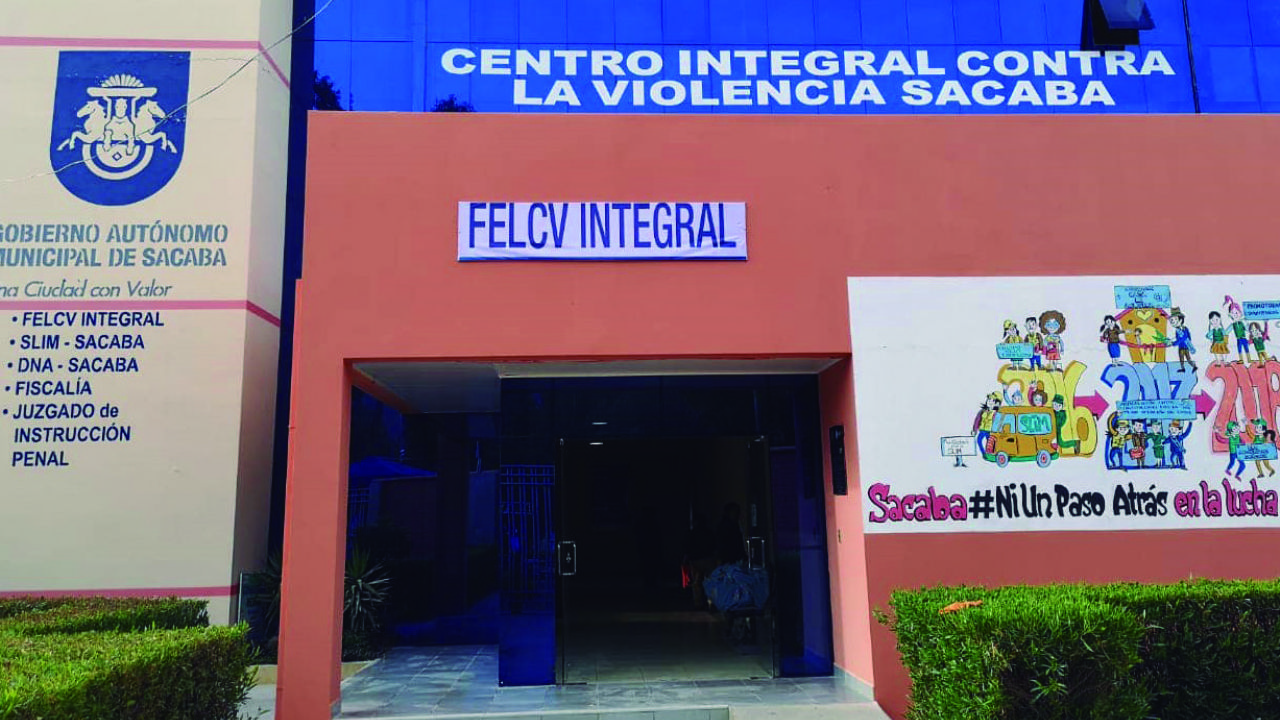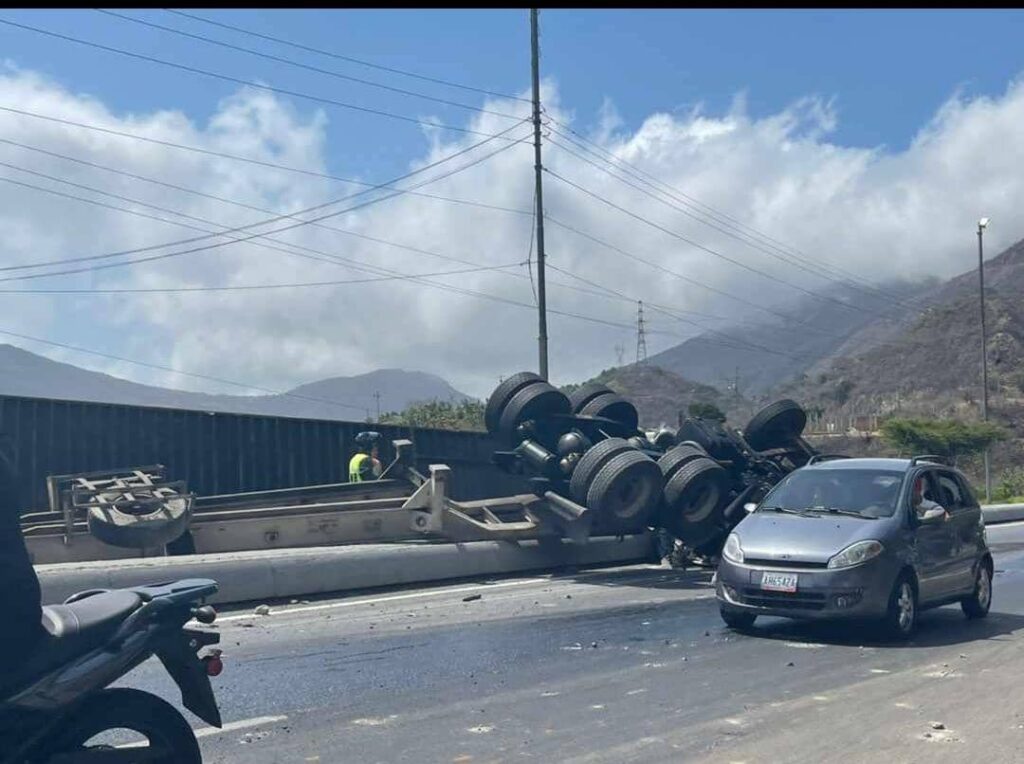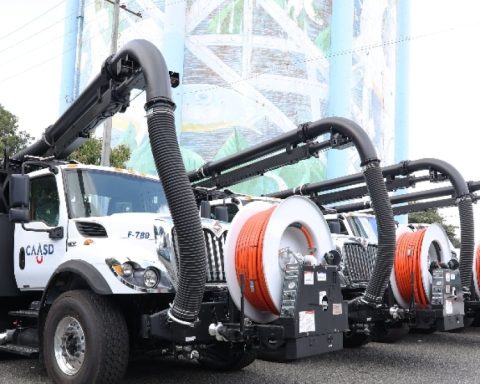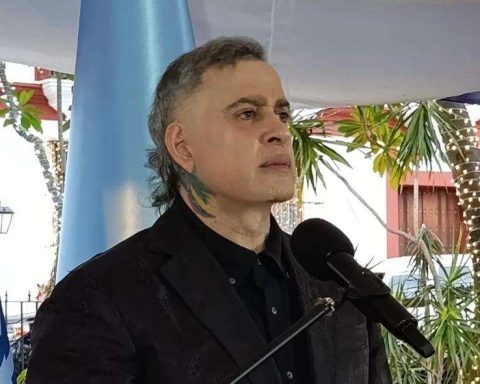Yolanda Mamani Cayo / La Paz
Victims of violence in Sacaba, Cochabamba, will now be able to file a complaint, undergo a forensic examination, receive psychological treatment, prompt diligence before the Police and the Prosecutor’s Office, and may even be housed in a shelter. This is the first Comprehensive Center Against Violence (CICV), which since April 1 has been dealing with cases of violence against women, children and vulnerable sectors, in order to also avoid re-victimization.
The institutions that are part of this first comprehensive service are the Special Force to Fight Violence (Felcv), the Municipal Comprehensive Legal Service (SLIM), the Ombudsman for Children and Adolescents (DNA), the Public Ministry and the Supreme Court. of Justice.
Sacaba victims in particular can go to the comprehensive center to file a complaint, undergo a forensic examination with personnel from the Forensic Investigations Institute (IDIF) and receive psychological treatment through SLIM.
If necessary, they can be accommodated in a “temporary shelter”. In the same center there are personnel from the Prosecutor’s Office and the Bolivian Police to carry out the investigation of the case and a court for the judicial process.
Photo: Ministry of the Presidency
The CICV that was inaugurated in the municipality of Sacaba on March 31 is the first pilot center with these characteristics in the entire country. Its implementation was carried out in compliance with article 24 of Law 348 “to guarantee women a life free of violence”.
Protected by this rule, Sacaba now offers Municipal Comprehensive Legal Services and Shelters and Temporary Shelters to act in coordination with the Bolivian Police, the Judicial Branch and health institutions.
The departmental commander of the Police, Rubén Darío Lobatón, confirmed that from the moment a victim of violence arrives at the center, they will have access to the entire service in one place.
“The victim will be able to carry out the complaint, but will also have the psychological, forensic medical accompaniment and the investigation as such. We are also going to be able to welcome them during those difficult days that a victim of violence lives”, explained the police officer.
coordinated work
For the project to work effectively, the Supreme Court of Justice (TSJ) worked on a “refunctionalization” of the two Investigation Courts in Sacaba to turn them into a court specialized in combating violence against women.
Mirtha Meneses Gómez, dean of the Council of the Judiciary, handed over the title of reassignment and extension of powers to the Judge of Investigation of Violence Against Women, Mauricio Pillco Mamani, and an institutional cooperation agreement was also established between the Judicial Branch and the Mayor’s Office of Sacaba.
The Government identified violence against women as the “main crime” in response to which, the attorney general, Juan Lanchipa, saw the need for joint work between all the entities involved.
“At the national level we have 34,519 cases to date, of which 11,764 correspond to crimes of gender violence. That is to say, 34% of all the cases that enter the Public Ministry so far this year (2022) are related to crimes against violence”, detailed prosecutor Lanchipa.
Served with 46% of cases
In the case of Cochabamba, the Departmental Prosecutor’s Office registered 25,326 cases, of which more than 35% correspond to gender violence and Sacaba, which is the second most populous municipality in that department, has 46% of cases in 2022, related to violence of genre.
In this regard, the representative of the Cochabamba Free Voices Foundation, Mercedes Cortez, described the installation of the CICV in Sacaba as positive and hopes that it can respond with results to the current needs of Cochabamba.
“Hopefully it is not only a complete infrastructure that has been born as a shelter (…) It remains to be seen if on the way they will agree to make, for example, a single statement (of the victim) where the expert has to be and all instances to prevent the victim from having to tell their story several times. We will see if that is going to be achieved”, Cortez wished.
Violence in figures
- cases • The Rape and Femicide Cases Review Commission identified 141 cases of murderers who were released, despite being convicted of those crimes.
- Incidence • Most of the cases are in La Paz (68), Santa Cruz (27), Cochabamba (25), Oruro (6), Potosí (6), Pando (5), Tarija (3) and Chuquisaca (1). .
- Femicides • From January to date, 23 femicides were officially reported in Bolivia. In 2021, in a similar period, 31 women were murdered in the country.
- Region • La Paz registers the highest number of femicides with 11 murders, six in Santa Cruz, three in Cochabamba, two in Beni and one in Potosí. They are data until April 1.
The Felcv Integral has a shelter to accommodate them during those difficult days faced by victims of violence
Colonel Ruben Dario Lobaton
3. 4%
OF THE COMPLAINTS
that arrive at the Public Ministry
They are for crimes of violence against women.

















